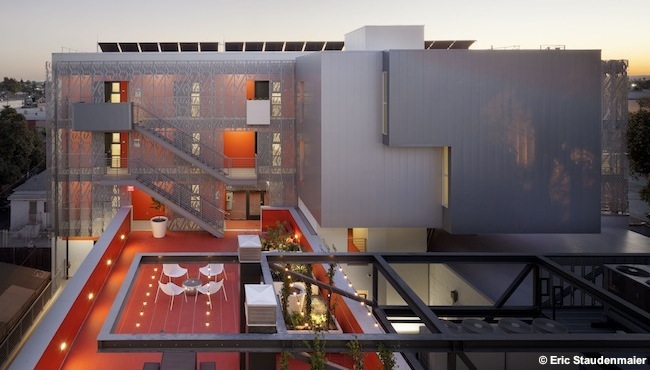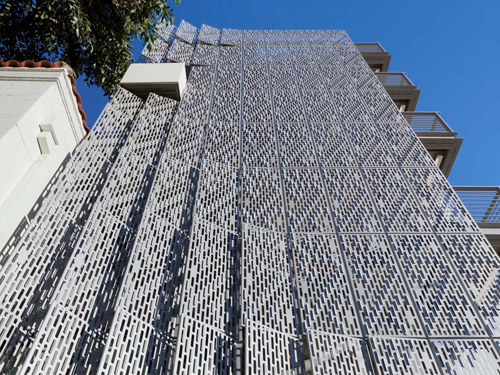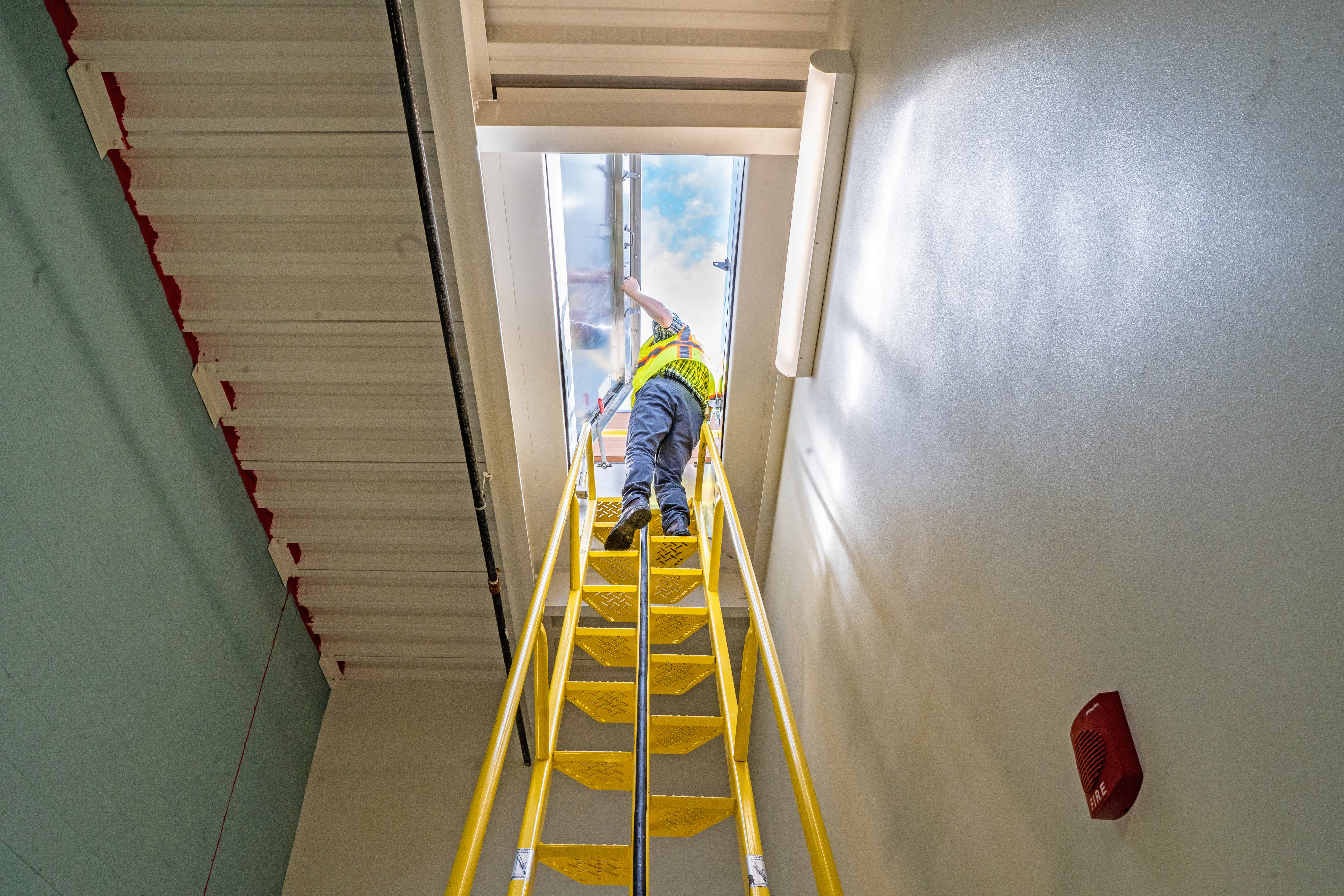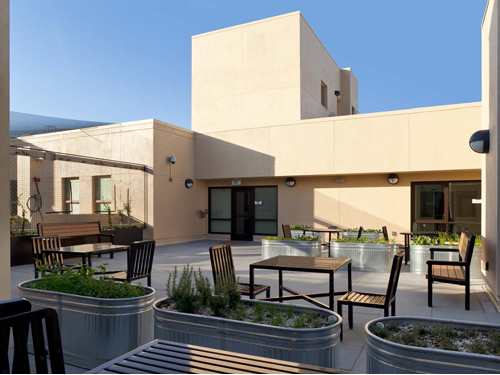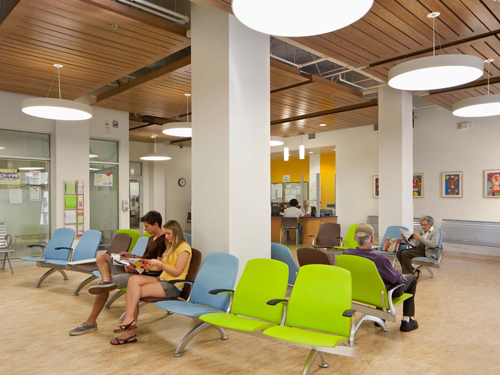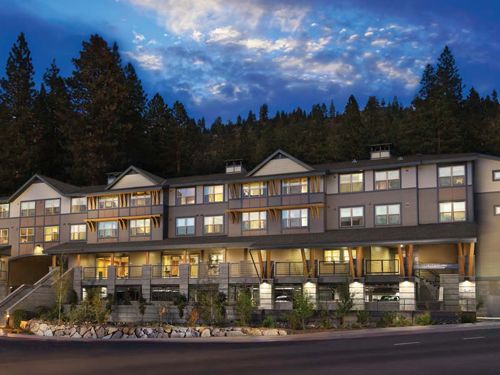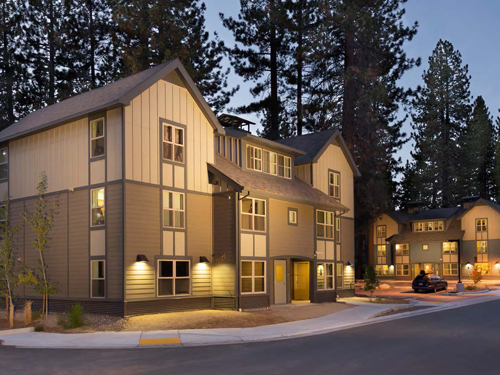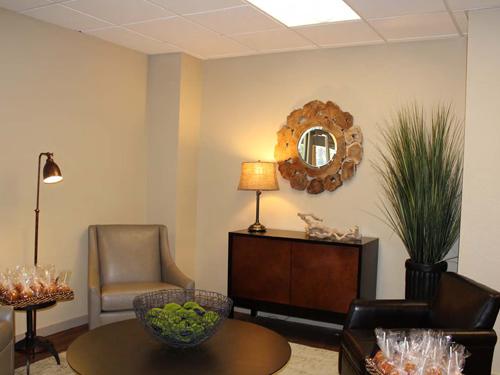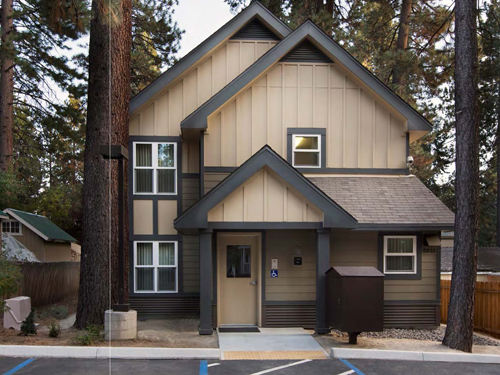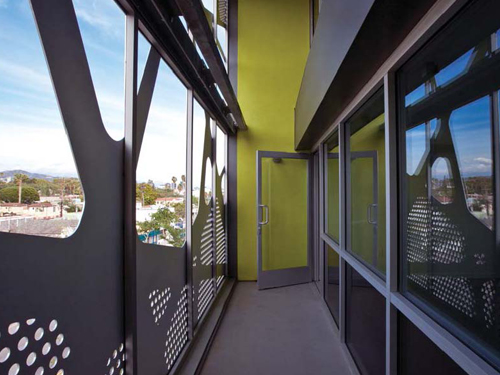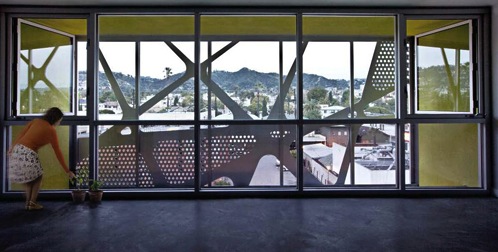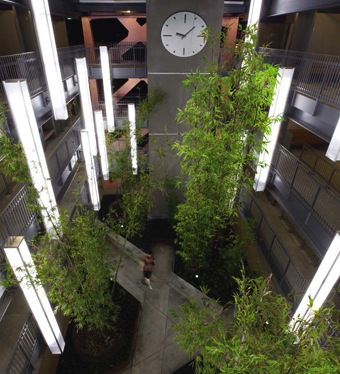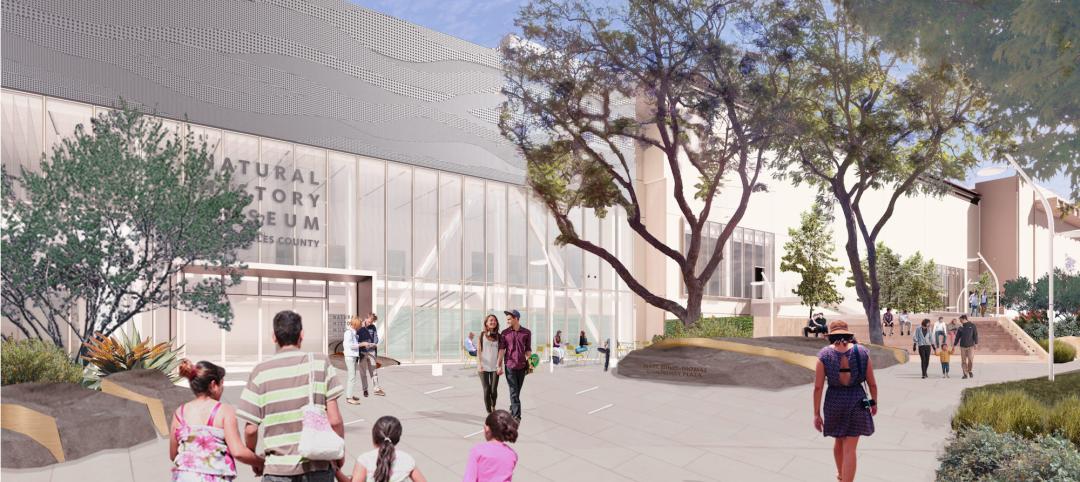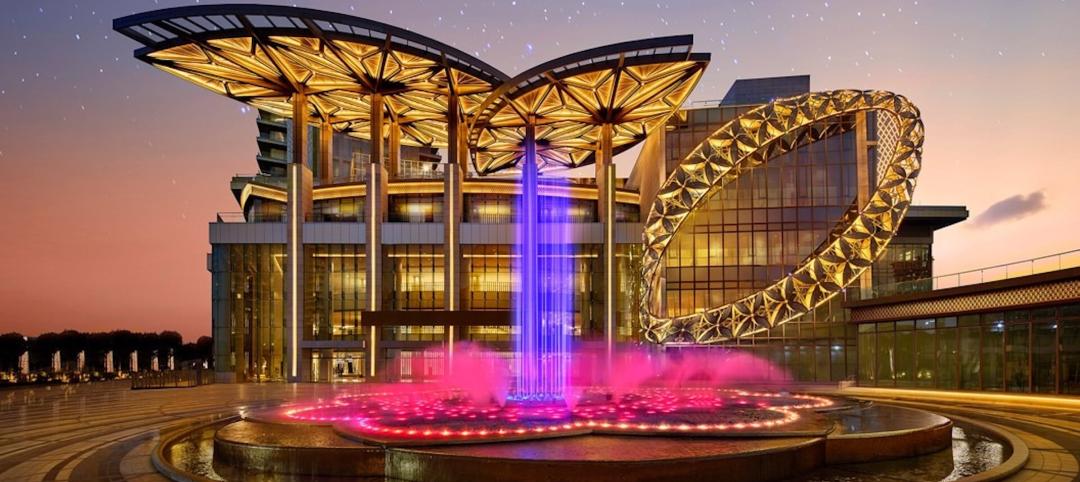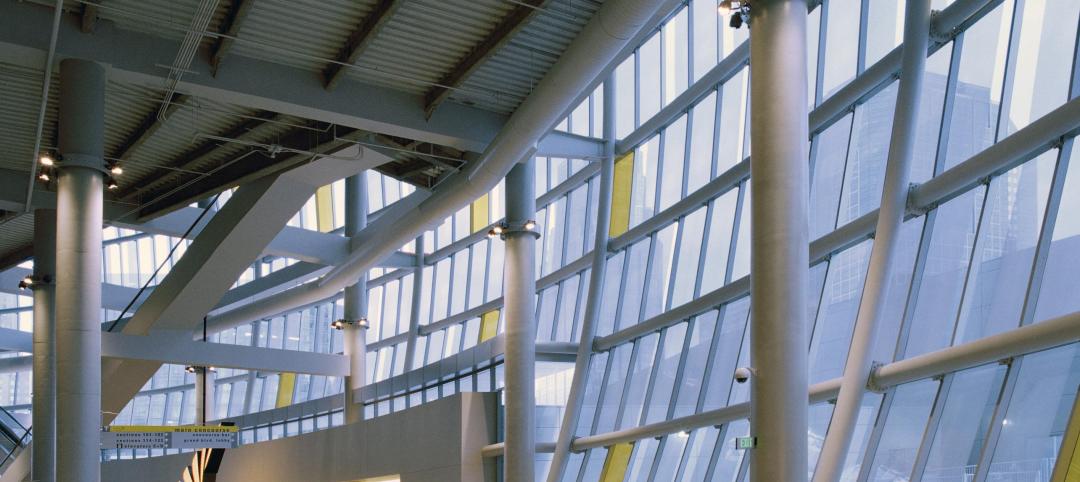The American Institute of Architects’ (AIA) Housing and Custom Residential Knowledge Community, in conjunction with the Office of the Secretary of the U.S. Department of Housing and Urban Development (HUD), recognized four recipients of the 2014 AIA/HUD Secretary Awards.
The categories of the program include Excellence in Affordable Housing Design, Creating Community Connection Award, Community-Informed Design Award and Housing Accessibility - Alan J. Rothman Award. These awards demonstrate that design matters, and the recipient projects offer examples of important developments in the housing industry.
“This year’s recipients are shining examples of how the latest innovations in design, materials and building techniques are not just for high-end housing but can also offer lower income families exceptional homes they can actually afford,” said HUD Secretary Shaun Donovan.
The jury for the 2014 AIA/HUD Secretary Awards included Nancy Ludwig, FAIA, (Chair), ICON architecture, inc.; David Barista, Building Design+Construction; Louise Braverman, FAIA, Louise Braverman Architect; Keith Fudge, U.S. Department of Housing and Urban Development; Paul Joice; U.S. Department of Housing and Urban Development and Jean Rehkeamp Larson, AIA, Rehkamp Larson Architects, Inc.
Category One: Excellence in Affordable Housing Design Award
28th Street Apartments, Los Angeles
Koning Eizenberg Architects
This project restored a 1926 YMCA building, designed by noted African American architect Paul R. Williams and listed on the National Register of Historic Places, and added a new five-story building at the rear of the existing structure.
The original building and addition house two nonprofit organizations; one offers neighborhood youth training and employment programs and the other provides 49 units of affordable housing for youth leaving foster care, the mentally ill, and the chronically homeless.
Support services are offered on-site, and residents have access to a roof garden, laundry, and lounge.
Category Two: Creating Community Connection Award
Kelly Cullen Community, San Francisco
Gelfand Partners Architects; Knapp Architects
San Francisco’s historic Central YMCA (1909), a nine-story Classical building located in the city’s Tenderloin neighborhood, has been transformed into supportive housing for the homeless and a health center for residents of supportive housing and the homeless.
The adaptive use project created 174 micro-units of permanent housing and preserved the original sky-lit second-floor lobby, auditorium, full-size gymnasium, offices, and meeting rooms.
A new radiant heating system, energy efficient lighting and ventilation, and the use of healthy materials support sustainability and resident well-being.
Category Three: Community-Informed Design Award
Kings Beach Housing Now, Kings Beach, Calif.
Domus Development; YHLA Architects
This project provides affordable workforce housing for low-income workers and families who previously lived in dilapidated, substandard housing in the Lake Tahoe Basin.
Consisting of nine buildings located on five scattered sites, Kings Beach Housing Now provides 77 LEED Silver apartments that reduce negative impacts on the environment, reuse infill land, and preserve Lake Tahoe’s beautiful open spaces. In addition, an advanced biofiltration system naturally filters 100% of on-site storm water, which prevents sediments and pollutants from negatively impacting the lake.
Category Four: Housing Accessibility | Alan J. Rothman Award
Sierra Bonita Housing, West Hollywood, Calif.
Patrick Tighe Architecture
The design challenge of this project, the first all-affordable mixed-use development in West Hollywood and the first designed and completed according to the city’s new Green Building Ordinance, was to fit the desired 42 accessible units on a 13,000-sf site and within a 50-foot height limit.
The design used minimal exterior setbacks and reversed the typical unit layout, locating the bedrooms along the interior building courtyard and the living areas on the street side, to capitalize on views and natural light.
Passive solar strategies generate power for all of the building’s common areas, and a second system of rooftop solar panels provides hot water for the entire building.
Related Stories
Museums | Jun 6, 2023
New wing of Natural History Museums of Los Angeles to be a destination and portal
NHM Commons, a new wing and community hub under construction at The Natural History Museums (NHM) of Los Angeles County, was designed to be both a destination and a portal into the building and to the surrounding grounds.
Performing Arts Centers | Jun 6, 2023
Mumbai, India’s new Nita Mukesh Ambani Cultural Centre has three performing arts venues
In Mumbai, India, the recently completed Nita Mukesh Ambani Cultural Centre (NMACC) will showcase music, theater, and fine arts from India and from across the globe. Atlanta’s TVS Design served as the principal architect and interior designer of both the cultural center and the larger, adjacent Jio World Centre.
Architects | Jun 6, 2023
Taking storytelling to a new level in building design, with Gensler's Bob Weis and Andy Cohen
Bob Weis, formerly the head of Disney Imagineering, was recently hired by Gensler as its Global Immersive Experience Design Leader. He joins the firm's co-CEO Andy Cohen to discuss how Gensler will focus on storytelling to connect people to its projects.
Codes and Standards | Jun 6, 2023
California’s new power grid modernization plan furthers ambitious climate goals
California’s new $7.3 billion grid modernization plan is a crucial step in furthering its ambitious climate goals. The board of governors for the California Independent System Operator (CAISO), the state’s grid operator, recently approved a strategy to build thousands of miles of new high-voltage transmission lines.
Mixed-Use | Jun 6, 2023
Public-private partnerships crucial to central business district revitalization
Central Business Districts are under pressure to keep themselves relevant as they face competition from new, vibrant mixed-use neighborhoods emerging across the world’s largest cities.
Multifamily Housing | Jun 6, 2023
Minnesota expected to adopt building code that would cut energy use by 80%
Minnesota Gov. Tim Walz is expected to soon sign a bill that would change the state’s commercial building code so that new structures would use 80% less energy when compared to a 2004 baseline standard. The legislation aims for full implementation of the new code by 2036.
Healthcare Facilities | Jun 5, 2023
Modernizing mental health care in emergency departments: Improving patient outcomes
In today’s mental health crisis, there is a widespread shortage of beds to handle certain populations. Patients may languish in the ED for hours or days before they can be linked to an appropriate inpatient program.
Student Housing | Jun 5, 2023
The power of student engagement: How on-campus student housing can increase enrollment
Studies have confirmed that students are more likely to graduate when they live on campus, particularly when the on-campus experience encourages student learning and engagement, writes Design Collaborative's Nathan Woods, AIA.
Engineers | Jun 5, 2023
How to properly assess structural wind damage
Properly assessing wind damage can identify vulnerabilities in a building's design or construction, which could lead to future damage or loss, writes Matt Wagner, SE, Principal and Managing Director with Walter P Moore.
Cladding and Facade Systems | Jun 5, 2023
27 important questions about façade leakage
Walter P Moore’s Darek Brandt discusses the key questions building owners and property managers should be asking to determine the health of their building's façade.


